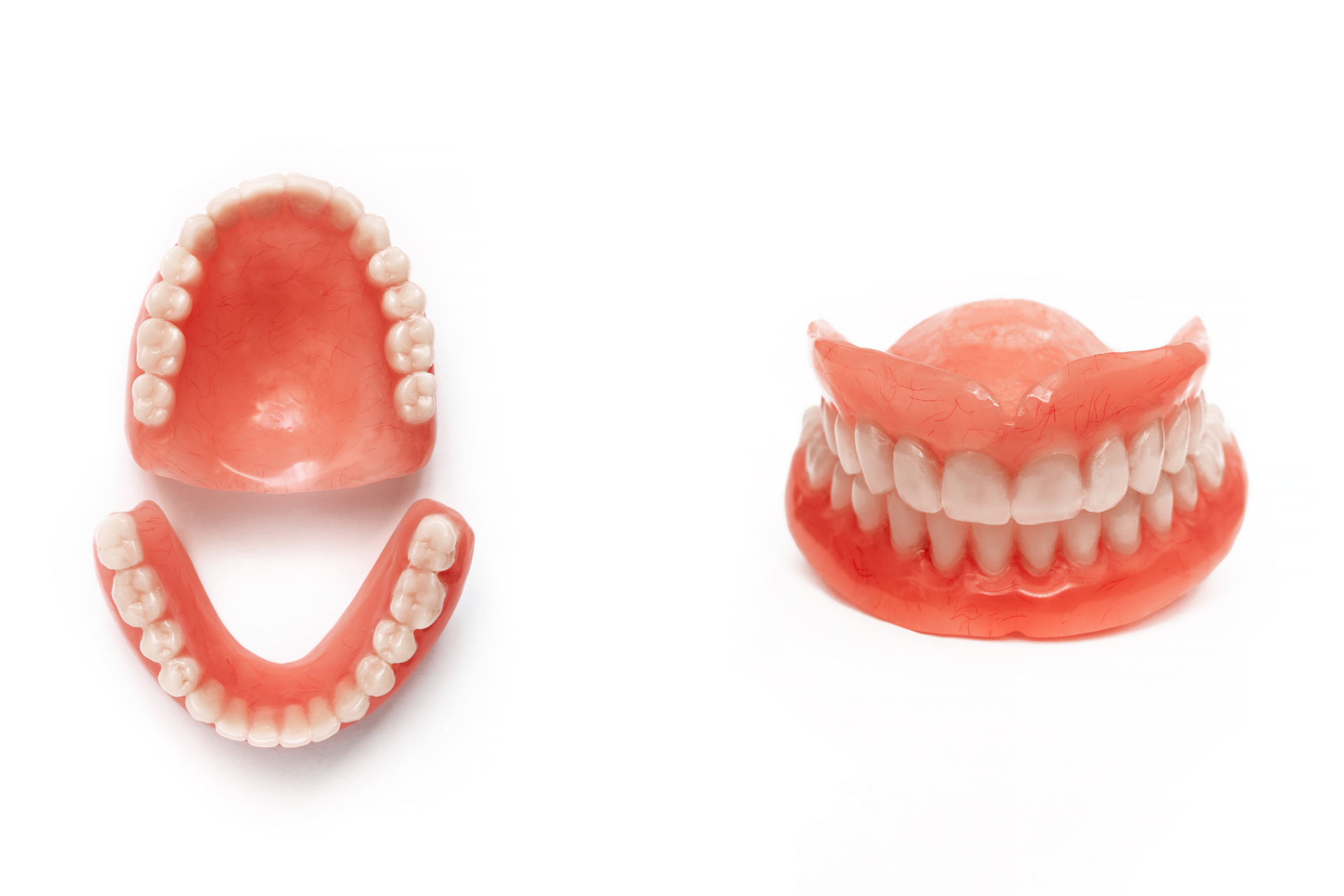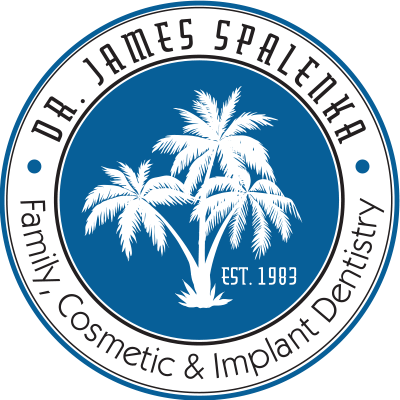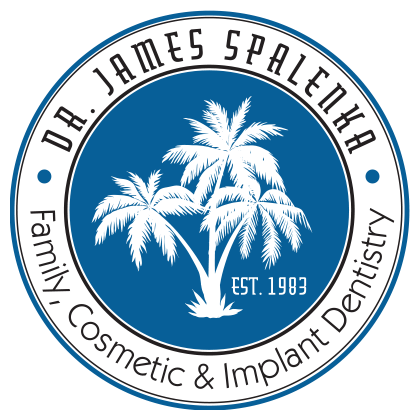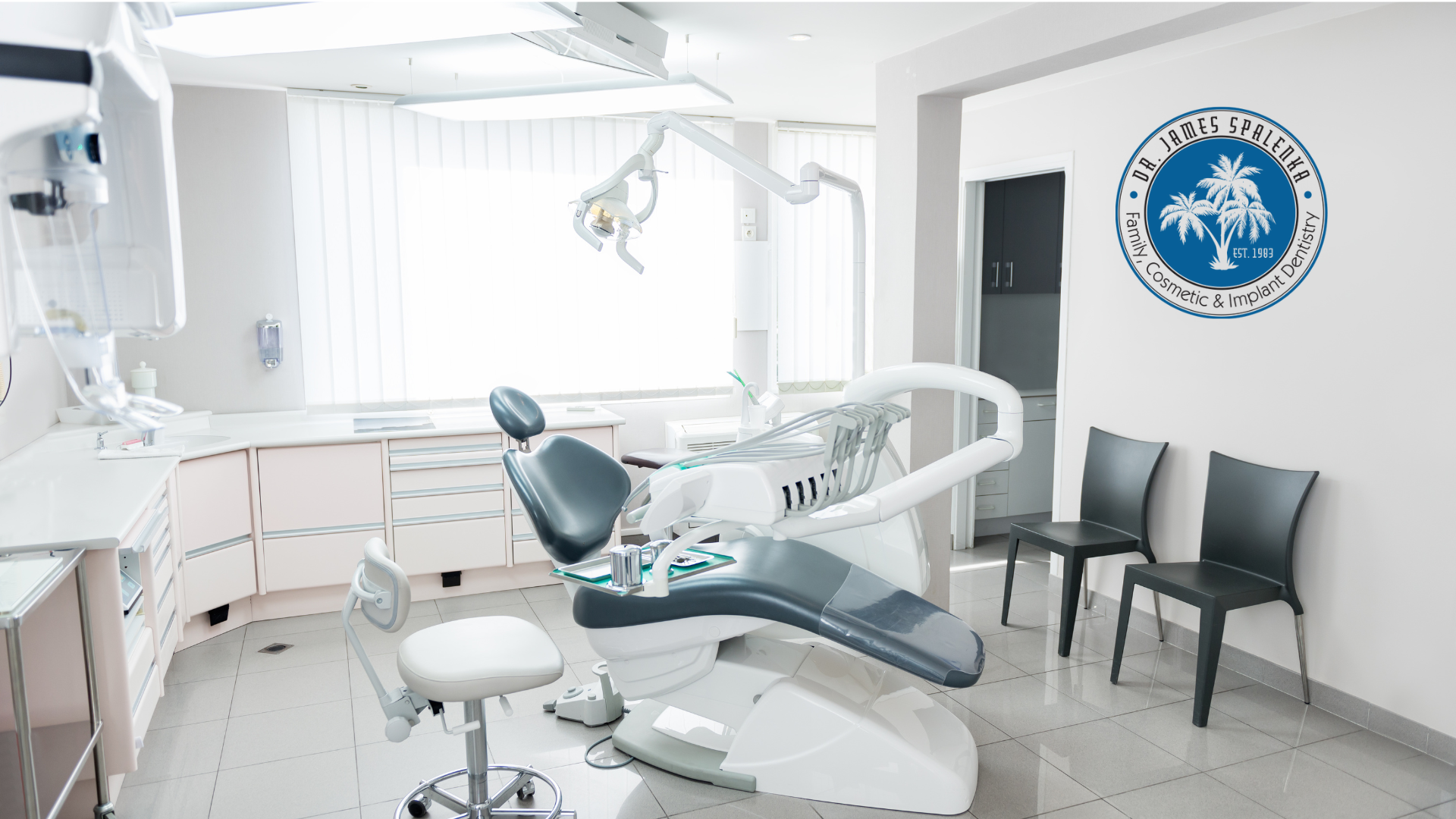Free Dental Restoration Consultation in San Diego, CA
A Comprehensive Guide to Full Mouth Restoration: Regaining Your Smile
A confident smile is not only a reflection of one's personality but also a powerful tool that can leave a lasting impression. It communicates warmth, approachability, and self-assuredness. However, many individuals find themselves grappling with dental issues that hinder their ability to smile confidently. These issues can range from missing teeth and discolored enamel to structural problems and functional impairments.
This is where the concept of full mouth restoration comes into play. Full mouth restoration is a comprehensive dental approach that aims to address and correct a wide range of dental concerns. It goes beyond cosmetic enhancements to encompass oral health and functionality. Through a combination of treatments and procedures, individuals can achieve a smile that not only looks fantastic but also functions optimally.
In this comprehensive guide, we will delve deep into the world of
full mouth restoration
. We will explore the various dental issues it can resolve, the processes involved, the types of treatments available, the benefits it offers, and much more. Whether you're considering full mouth restoration for yourself or simply curious about this transformative dental journey, join us as we embark on an enlightening exploration of regaining your smile with confidence.

Understanding Full Mouth Restoration
Full mouth restoration , often referred to as full mouth reconstruction or rehabilitation, is a comprehensive and customized dental procedure designed to restore the health, functionality, and aesthetics of an individual's entire mouth. It goes beyond cosmetic dentistry, addressing a wide range of dental issues to improve oral health, function, and appearance simultaneously.
There are several reasons why someone might need full mouth restoration:
- Severe Dental Problems: Individuals with extensive dental issues such as missing teeth, tooth decay, gum disease, or structural damage may require full mouth restoration to regain their oral health.
- Trauma or Injury: Accidents or injuries that result in significant damage to the mouth's structures can necessitate full mouth reconstruction to restore function and appearance.
- Chronic Pain or Discomfort: Persistent dental pain, discomfort, or difficulty with chewing and speaking can be indicative of underlying dental problems that full mouth restoration can address.
- Desire for Cosmetic Enhancement: Some individuals seek full mouth restoration for cosmetic reasons, as it can transform their smile, making it more aesthetically pleasing.
The transformative impact of full mouth restoration extends beyond a beautiful smile. It can significantly improve overall oral health, enhance speech and eating functions, boost self-confidence, and provide a better quality of life. This section will provide a foundational understanding of full mouth restoration and its importance in addressing complex dental issues.
Common Dental Issues Requiring Full Mouth Restoration
Full mouth restoration is often recommended for individuals facing a variety of complex dental problems that impact their oral health and overall well-being. Some common dental issues that may necessitate full mouth restoration include:- Severe Tooth Decay: Extensive tooth decay can lead to pain, infection, and tooth loss. Full mouth restoration may involve treatments like root canals, dental fillings, and dental crowns to address decayed teeth.
- Missing Teeth: Gaps from missing teeth can affect bite alignment and cause neighboring teeth to shift. Dental implants, bridges, or dentures may be used to replace missing teeth.
- Gum Disease: Advanced gum disease can lead to gum recession, tooth mobility, and even tooth loss. Periodontal treatments may be included in full mouth restoration to address gum health.
- Broken or Cracked Teeth: Teeth that are broken or cracked due to trauma or dental issues can be restored with dental crowns or veneers.
- Malocclusion (Misalignment): Crooked teeth or bite misalignment can cause functional and aesthetic issues. Orthodontic treatments like braces or clear aligners may be part of full mouth restoration.
- TMJ Disorders: Temporomandibular joint disorders can lead to jaw pain and dysfunction. Full mouth restoration can address these issues to improve jaw function.
Case studies and examples will be provided to illustrate the severity and impact of these dental issues, highlighting the need for comprehensive full mouth restoration to restore oral health and function.
The Full Mouth Restoration Process
Undergoing full mouth restoration is a carefully planned and comprehensive dental journey. The process typically involves several key steps:- Comprehensive Dental Evaluation: The first step is a thorough assessment of your oral health. This evaluation includes dental exams, X-rays, and other diagnostic tests to identify existing dental issues, such as decay, gum disease, missing teeth, or misalignment.
- Consultation and Treatment Planning: After the evaluation, you'll have a consultation with your dentist or prosthodontist to discuss the findings and your treatment goals. Together, you'll create a personalized treatment plan tailored to address your specific needs and desires. This plan may include a combination of restorative and cosmetic dental procedures.
- Prioritizing Treatment: In many cases, full mouth restoration involves addressing urgent dental issues first, such as treating infections or relieving pain. Once these immediate concerns are managed, the rest of the treatment plan is implemented.
- Treatment Procedures: The specific procedures in a full mouth restoration can vary widely depending on your unique situation. Common treatments may include dental fillings, root canals, periodontal therapy, dental crowns, bridges, dental implants, orthodontic treatments, and more. These procedures are performed systematically, with a focus on restoring both function and aesthetics.
- Follow-Up and Maintenance : After the initial treatments are completed, regular follow-up appointments are essential to monitor progress, ensure healing, and make any necessary adjustments. Proper oral hygiene and maintenance are crucial to preserving the results of full mouth restoration.
Throughout this process, open communication with your dental team is key. They will guide you every step of the way, ensuring your comfort and satisfaction with the results. The ultimate goal of full mouth restoration is to restore your oral health, function, and confidence, allowing you to enjoy a beautiful and healthy smile.
Types of Treatments in Full Mouth Restoration
Full mouth restoration encompasses a wide range of dental treatments tailored to individual needs. Here are some of the key procedures commonly involved:
Dental Implants:
Dental implants are a revolutionary solution for replacing missing teeth. They consist of titanium posts surgically implanted into the jawbone, topped with realistic-looking crowns. Implants provide excellent stability, function, and aesthetics, often lasting a lifetime.
Dental Crowns:
Crowns are tooth-shaped caps placed over damaged or weakened teeth to restore their strength, shape, and appearance. They are often used to protect and support teeth that have undergone root canals or have large fillings.
Dental Bridges:
Bridges are used to replace one or more missing teeth by anchoring artificial teeth to adjacent natural teeth or dental implants. They restore both function and appearance, preventing neighboring teeth from shifting.
Dental Veneers:
Veneers are ultra-thin shells made of porcelain or composite resin. They are custom-crafted to cover the front surface of teeth and are an excellent solution for improving the appearance of stained, misaligned, or damaged teeth.
Orthodontic Treatments:
Orthodontic interventions like braces or clear aligners are essential for correcting misaligned teeth and bite issues. Straightening teeth not only enhances aesthetics but also improves oral health.
Periodontal Treatments:
Gum health is crucial in full mouth restoration. Periodontal treatments, such as scaling and root planing, help manage gum disease and maintain a healthy foundation for your teeth.
Teeth Whitening:
Professional teeth whitening can be a part of full mouth restoration to enhance the overall aesthetics of your smile. It's a non-invasive procedure that can brighten discolored teeth.
Each of these treatments offers distinct benefits, and their suitability depends on your specific dental needs. While these procedures can greatly enhance your oral health and appearance, it's essential to consult with your dentist to determine the most appropriate combination of treatments for your full mouth restoration plan.
Real-life patient stories can provide valuable insights into the transformative power of these treatments. These stories showcase the journey from dental issues to restored smiles, giving hope and inspiration to those considering full mouth restoration.
Benefits of Full Mouth Restoration
The benefits of full mouth restoration extend far beyond a beautiful smile. This comprehensive dental approach offers numerous physical and emotional advantages, transforming the lives of those who undergo the process.
Physical Benefits:
Improved Oral Health: Full mouth restoration addresses underlying dental issues, such as decay, gum disease, and misalignment. This leads to better oral health, reducing the risk of future dental problems.
Enhanced Functionality:
Patients experience improved bite function, making it easier to chew and speak properly. This positively impacts overall nutrition and speech clarity.
Pain Relief:
Individuals suffering from dental pain, whether due to decay or misaligned teeth, often find relief through full mouth restoration. It alleviates discomfort and enhances daily comfort.
Emotional Benefits:
Boosted Confidence: A restored, beautiful smile can significantly boost self-esteem and confidence. Patients often feel more comfortable in social and professional situations.
Reduced Anxiety: A
ddressing dental issues can alleviate anxiety related to oral health. Knowing that your dental health is in excellent condition can reduce stress and worry.
Enhanced Quality of Life:
Full mouth restoration can lead to an overall improved quality of life. Patients can enjoy a diverse diet, speak confidently, and smile without reservation.
To illustrate these benefits, let's hear from some of our patients:
- Emily , a full mouth restoration recipient, shares, "I used to hide my smile, but now I can't stop smiling! Full mouth restoration changed my life."
- John , who struggled with eating due to dental issues, says, "I can finally enjoy all my favorite foods again. It's like having a new lease on life!"
These testimonials demonstrate the life-changing impact of full mouth restoration, both physically and emotionally. It's not just about teeth; it's about reclaiming your confidence and improving your overall well-being.
Preparing for Full Mouth Restoration
Preparing for full mouth restoration involves more than just dental considerations; it also requires mental and emotional readiness. Here are some essential steps to ensure a smooth journey towards your dream smile:
1. Mental and Emotional Preparedness:
Undergoing full mouth restoration can be a transformative experience, and mental preparedness is crucial. Here's how to get ready:
Set Realistic Expectations:
Understand that the process may take time, and there may be some discomfort along the way. Trust your dental team's expertise.
Visualize the Outcome:
Envision the positive changes your new smile will bring to your life. This can help you stay motivated throughout the process.
Open Communication:
Share your concerns, fears, and expectations with your dental team. They are there to support you and ensure your comfort.
2. Choosing the Right Dental Professional:
Selecting a qualified and experienced dental professional is paramount to the success of your full mouth restoration. Consider these factors:
Credentials and Experience:
Research the dentist's credentials, experience, and specialization in restorative dentistry.
Patient Reviews:
Read patient testimonials and reviews to gauge the dentist's reputation and patient satisfaction.
Consultation:
Schedule a consultation to discuss your goals, treatment options, and any questions you may have.
3. Financial and Insurance Considerations:
Full mouth restoration is an investment in your oral health and well-being. Here's how to navigate the financial aspect:
Discuss Costs:
Have a transparent discussion with your dental team about the estimated costs of the procedures involved. They can help you understand the financial aspects.
Insurance Coverage:
Check your dental insurance policy to see if it covers any part of the restoration process. Some procedures may be eligible for coverage.
Payment Plans
: Inquire about flexible payment plans or financing options that can make the process more affordable.
By mentally preparing, choosing the right dental professional, and addressing financial considerations, you can embark on your full mouth restoration journey with confidence and peace of mind. Remember, it's a step towards a healthier, more confident you.
Recovery and Aftercare
The recovery and aftercare phase following full mouth restoration is essential for ensuring the longevity of your dental work and maintaining optimal oral health. Here's what you can expect during this period:
1. Immediate Post-Procedure Recovery:
- Sensitivity: You may experience some sensitivity or discomfort immediately after certain procedures. Your dentist may prescribe pain relievers or recommend over-the-counter options.
- Swelling: Swelling and mild bruising are possible, particularly if you've had oral surgery. Applying ice packs and following your dentist's instructions can help reduce swelling.
- Diet: Stick to soft foods and liquids for the first few days to avoid placing excessive pressure on your dental work.
2. Long-Term Aftercare:
- Oral Hygiene : Maintain excellent oral hygiene practices, including brushing, flossing, and rinsing as recommended by your dentist. Use a soft-bristle toothbrush to prevent damage to dental restorations.
- Regular Dental Checkups: Schedule regular follow-up appointments with your dentist to monitor the condition of your restorations and ensure their longevity.
- Dental Cleanings: Professional dental cleanings are essential to prevent plaque buildup and maintain the health of your natural teeth and restorations.
- Oral Health Products: Consider using fluoride toothpaste or mouthwash as advised by your dentist to strengthen your teeth and restorations.
- Avoid Habits: Refrain from habits like teeth grinding or clenching, which can damage dental work. If necessary, your dentist may recommend a nightguard.
By following these recovery and aftercare guidelines diligently, you can enjoy the full benefits of your full mouth restoration and maintain a healthy, beautiful smile for years to come. Always consult your dental professional for personalized instructions based on your specific treatment plan.
Common Concerns and Reassurance
1. Pain and Discomfort: It's natural to be concerned about potential pain or discomfort during and after full mouth restoration. Rest assured that your dental team will prioritize your comfort. Local anesthesia and sedation options are available to minimize any pain during procedures. Post-procedure discomfort is usually manageable with pain relievers, and it typically subsides within a few days.
2. Length of Treatment:
Full mouth restoration can involve multiple procedures, which may raise concerns about the duration of treatment. Your dental professional will create a personalized treatment plan that takes into account your specific needs and timeline. They will work with you to ensure the most efficient and effective treatment possible.
3. Cost:
The financial aspect of full mouth restoration can be worrisome. While it's true that these treatments can be an investment, many dental offices offer financing options to make them more accessible. Additionally, consider the long-term benefits of improved oral health, function, and confidence, which can outweigh the initial costs.
4. Fear of the Unknown
: Fear of the unknown is a common concern when embarking on any significant dental treatment. To alleviate this fear, maintain open communication with your dental team. Ask questions, seek clarifications, and voice any concerns you may have. A well-informed patient is often more confident and comfortable throughout the process.
5. Long-Term Maintenance:
Patients often wonder how to maintain their new dental work for the long term. Your dentist will provide detailed aftercare instructions and recommend regular checkups to monitor the health and condition of your restorations. By following their guidance and practicing good oral hygiene, you can ensure the longevity of your dental work.
6. Aesthetics and Functionality:
Concerns about the appearance and functionality of your new smile are entirely valid. Full mouth restoration aims to enhance both aesthetics and functionality. During the planning process, your dentist will work with you to achieve the desired results, ensuring your satisfaction with the final outcome.
Remember that your dental team's primary goal is to provide you with a healthy, functional, and beautiful smile while prioritizing your comfort and well-being. They are experienced professionals who have successfully helped countless patients achieve their dental goals. Feel free to discuss your concerns openly with them to receive personalized reassurance and guidance throughout your full mouth restoration journey.
The Cost of Full Mouth Restoration
Full mouth restoration is a comprehensive dental procedure that can vary widely in cost depending on several factors. Understanding these cost factors and exploring financing options is essential for patients considering this transformative process.
Cost Factors
Extent of Restoration: The complexity and extent of dental issues requiring treatment play a significant role in determining the cost. More extensive restorations involving multiple teeth or full arches can be more expensive.
Choice of Procedures
: The specific dental procedures selected for restoration greatly influence the overall cost. Common procedures include dental implants, crowns, bridges, veneers, and more.
Materials Used:
The quality and type of materials used for restorations also impact the cost. High-quality materials tend to be more durable and may come at a higher price.
Dentist's Expertise:
The experience and reputation of the dental professional performing the restoration can affect the cost. Highly skilled and specialized dentists may charge more for their services.
Financing Options
Dental Insurance:
Some dental insurance plans may cover a portion of the cost of certain restorative procedures. Check with your insurance provider to understand what is covered.
Payment Plans:
Many dental offices offer flexible payment plans to help patients manage the cost of full mouth restoration. These plans may involve spreading payments over an extended period.
Healthcare Financing:
Healthcare financing companies provide loans specifically for medical and dental expenses. These loans often come with competitive interest rates and convenient repayment terms.
Case Study
Consider the case of Sarah, who needed full mouth restoration due to
severe dental decay
and
missing teeth
. Her treatment plan included
dental implants
,
crowns
, and
veneers
. The estimated cost of her restoration was
$20,000
.
Sarah opted for a payment plan offered by her dental office, which allowed her to make monthly payments over two years. With this financing option, she comfortably managed the cost of her restoration while enjoying the benefits of a healthy and beautiful smile.
Full mouth restoration is an investment in your oral health and overall well-being. While it may involve a significant cost, exploring financing options and discussing payment plans with your dental team can make it more manageable and accessible for those seeking to regain their dental health and confidence.
10 Frequently Asked Questions
Full mouth restoration is a comprehensive dental procedure that often raises various questions and concerns. Here, we address some of the most frequently asked questions to provide a better understanding of the process.
The office of Dr. James Spalenka, DDS.
A Gentle, Comfortable Dental Experience, Offering Skill & Modern Technology
HIGH-TECH EQUIPMENT | CARING STAFF | MODERN OFFICE



